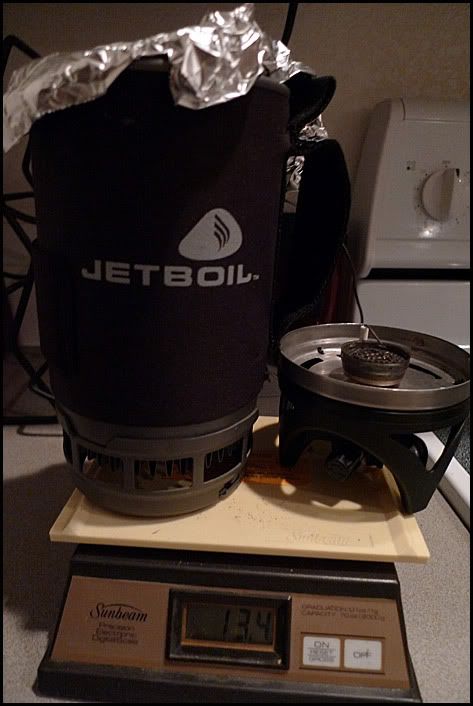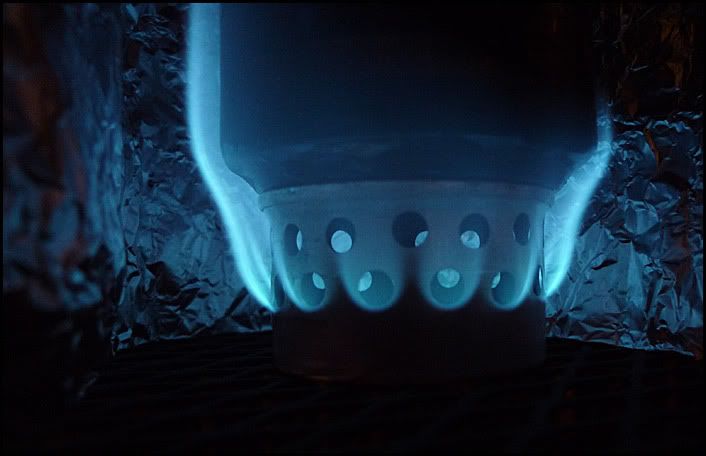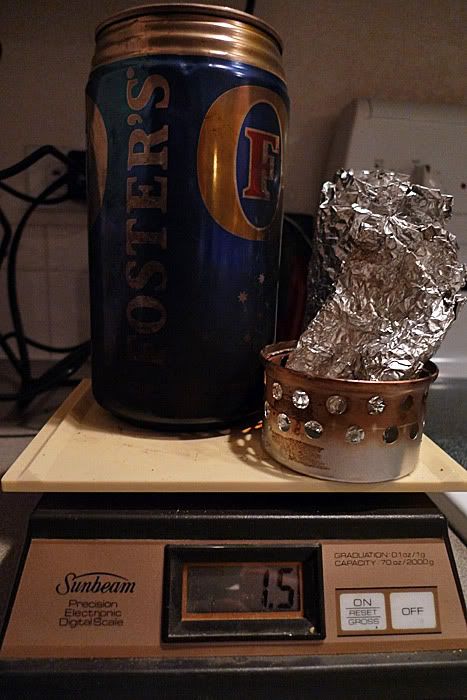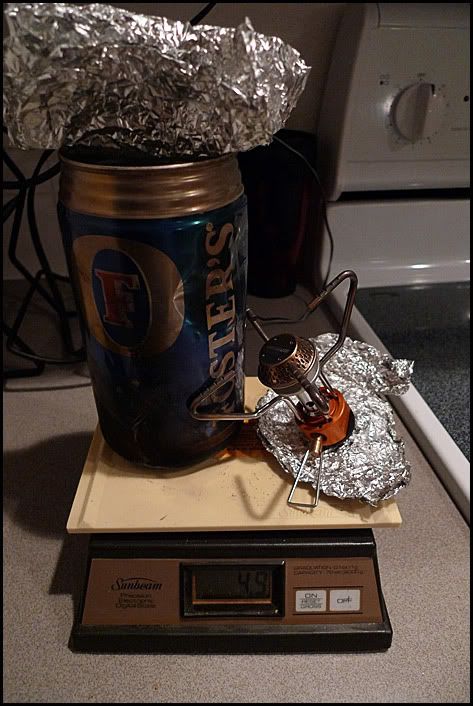Lets start with the goal. A light compact stove that can boil water for a few-day bike camping trip. Looking at it as a package, the stove, fuel and boiling pot should be light and compact as possible.
I apologize in advance for using both ounces and grams. I should have stuck with grams. Weights of stoves do not include fuel or fuel containers. That will be discussed later.
First up. Jetboil:
What a great stove. Boils water in 2 minutes (in normal conditions), has a nice neoprene koozie for insulation and it self starts. It's said it can boil 10 liters of water per 100 grams of fuel--I believe it. It's a winner in all regards except that it weighs a lot. Even a minimal configuration with foil as a cover weighs 14.4 ounces (408 grams).

Next, Jim Wood's "Super Cat" Ethanol Stove:
After fussing with penny alcohol stoves of different designs, I made a simple stove that worked well using a Redbull can. Then I discovered a robust version called a "supercat". It's a quasi-pressurized stove that is as simple as it gets, a can with holes. It serves at a pot stand and is one single piece.

The idea is that the pot itself seals the stove and helps pressurize it. It works better than any alcohol stove I built. Using a beer can pot, the entire package sans fuel--but including windscreen--weighs barely 1.5 ounces (or 43 grams). It's an elegant system.

However, there are two issues, fuel and control. One has to learn from experience to determine the amount of fuel to use and once it's going, it's hard to control. But this is not that much of an issue. The other problem is the fuel efficiency. It takes about an ounce of Ethanol to boil two cups of water. That turns out to be about 23 grams of fuel to boil two cups. In contrast, the Propane/Isobutane mix uses only 5-8 grams of fuel to boil the same amount of water.
Finally, A balance in this is the Brunton stove using the canister and beer can pot. Total weight is 4.9 ounces (139 grams) before fuel. It's the compromise--Light weight with control.

The Brunton in action on a Fosters lager can pot.

It seems to come down to the fuel package weight, thus trip duration or number of people using the stove--or total boils per trip. A full canister of Propane/Isobutane weighs 200 grams( 100 grams of fuel in a 100 gram container), but can boil water for many boils (about 10 quarts), whereas 100 grams of Alcohol can only boil 2 quarts. A long trip or many users go with canister, short trip, alcohol.
As great as the jetboil is though, it gets beaten by the Brunton/Beer pot combo. The Jetboil is super slick and convenient but has a half-pound penalty over the cheaper and lighter Brunton...and that is when you strip it down.
That said, the Jetboil is plug and play while the Brunton is hacker rolled.
To summarize, here are the weights, neglecting ease of use.
Jetboil: 608 grams = 20-2 cup boils
Brunton: 339 grams = 20-2 cup boils
Super Cat: 43 grams + 23 grams per 2-cup boil.
I assume 4-2 cup boils per person day camping. That means the super cat can do 12, 2 cup boils for the same weight as the Brunton--or 3 full days. You can camp for 6 days with the Super Cat when you match the weight of the Jetboil.
That translates to using the Brunton if the camp will be three days or more, or if shared, at or more than 1.5 days.
Oddly enough, a propane/isobutane stove is cheaper per boil than alcohol.
PS: An amazing thing I learned when making the Super Cat stove (while acquring cans) is that potted meat for humans is half to one-third the price of cat food in those three ounce cans. Think about that for a minute. This is Boulder prices at King Soopers.
